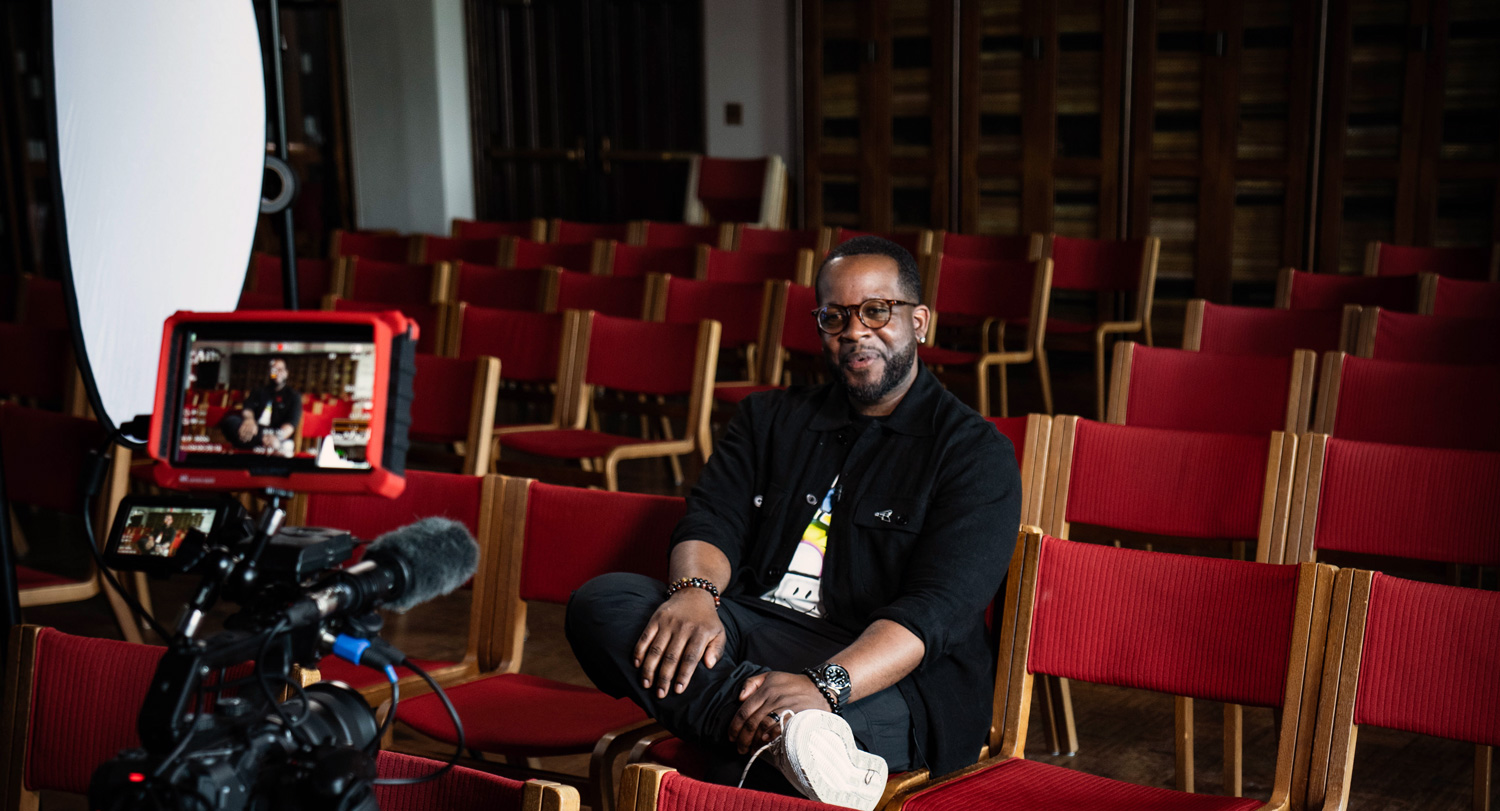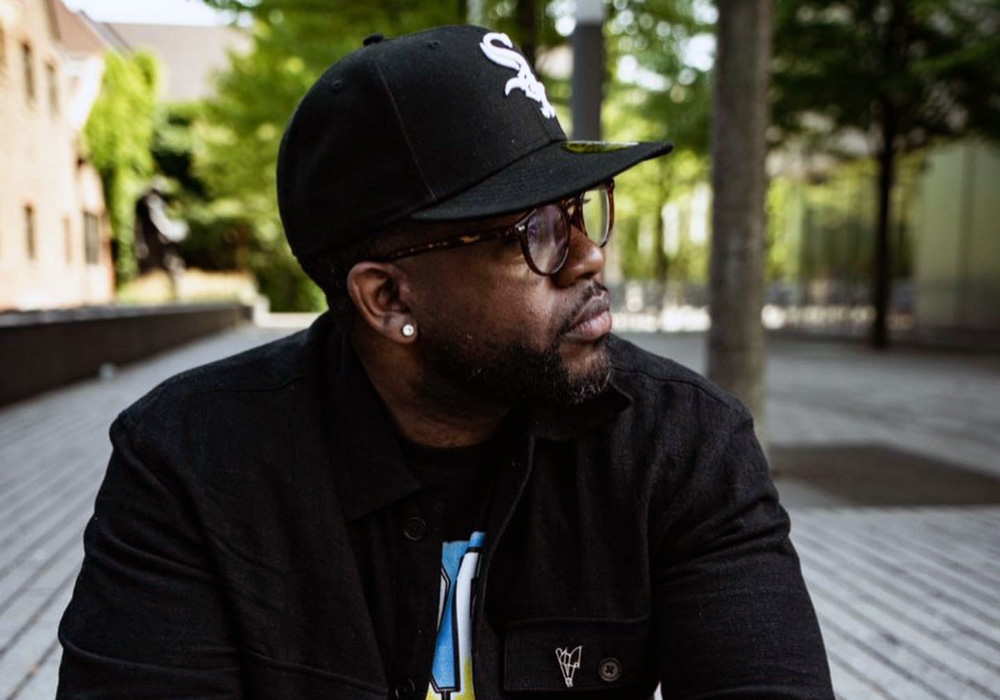
The Windy City is home to deep dish pizza, two professional baseball teams, amazing restaurants and music clubs. It’s also where University of South Carolina assistant professor Jabari Evans was born. The School of Journalism and Mass Communications instructor also is a White Sox fan and a hip-hop artist.
Those factors led Evans to be “discovered” by Tim Brogdon, digital and content strategist for the White Sox who wanted to celebrate the intersection of hip-hop and the iconic White Sox cap in a documentary.
Tipping the scales even more in Evans’ favor was a 2021 article he wrote for The Athletic tracing the history of the White Sox cap and its impact on culture. Oh, and, Evans has a Ph.D. in media, technology and society.
“I was initially just supposed to appear in the film and the more conversation that we had, Tim was like ‘I want you to come produce this film. Can you give me a list of people we could talk to, a list of people to interview?’ ”
With his promotion to an associate producer, Evans not only was tasked with finding influential people of the era to feature, interviewing stars like Ice Cube and Keke Palmer, but also became the “fact-checking ear” on the project, trying to avoid misrepresentation of hip-hop and sport.
“The goal was to increase social media presence and do something culture-related not just about baseball. Baseball is historically America's pastime, historically related to the black community, to the hip-hop community. In recent years, there's been a disconnect, and the White Sox are doing great work to reconnect with that community.”
Working to bridge this gap, the White Sox invite community members to throw the ceremonial first pitch at their home games and are currently working on their RBI program, which supports junior level all-star teams to help grow interest in the game with underserved youth.
The stars really aligned with this project and his love of teaching, Evans said, “The J-School is about storytelling, the documentary was timely with the anniversaries, it was a perfect synergy.”
Evans’ classes focus on representation of race in mass media, mostly about Black culture. Mentioning rap, fashion and sports, the overarching themes of Evans’ classes are the connections between youth, culture, digital media and representation.
In April, his class on hip-hop, media and society will get a private screening of the Fitted in Black documentary with a visit from Tim Brogdon. The discussion will touch on how hip-hop has been influential in more than just music, movies and television: You can see it in sports, too.
The White Sox hat is one example. People wear it not because they are necessarily White Sox fans but because it was part of a lifestyle. Similarly the New York Yankees’ and LA Dodgers’ hats have also found a permanent home in the closets of people other than die-hard fans.
Since the premiere of the documentary in August 2023, Evans has continued his work and submitted a few essays to The Conversation on topics such as Deion Sanders’ move to the head coaching role at the University of Colorado Boulder, which invigorated the football program.
This documentary also reignited Evans’ desire to do sports-related research and to teach classes on the intersections of media, sports and race. Looking forward, Evans is hoping to explore research ideas involving social media’s impact on teams and how young athletes use social media for branding. Many college athletes, including those at USC, are using social media to burnish their name, image and likeness proceeds.
You can stream Fitted in Black: How Hip-Hop Fueled the Greatest Rebrand in Sports on the MLB website or the Chicago White Sox YouTube channel.
